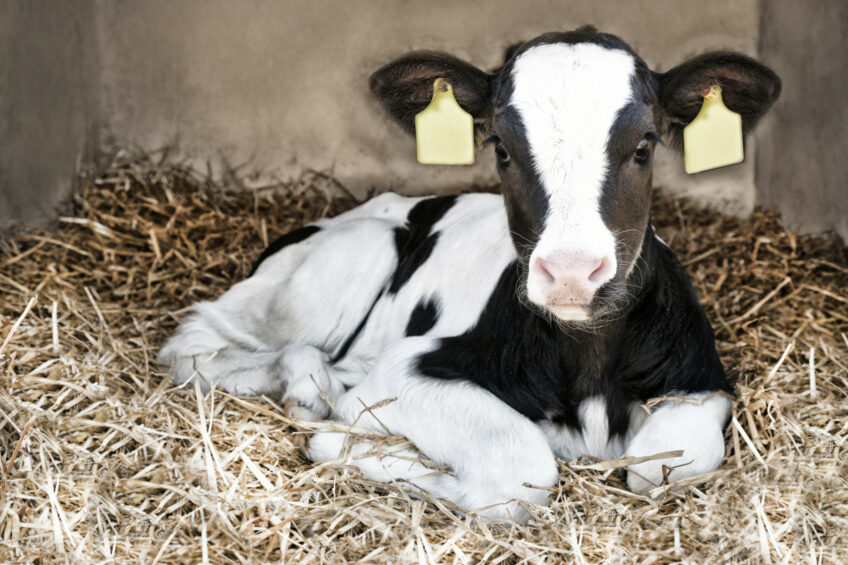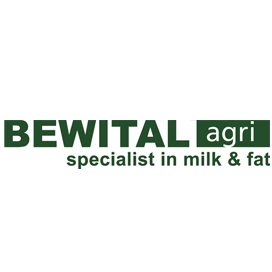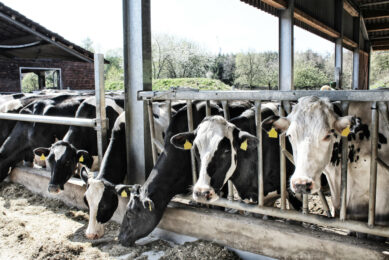How to raise a healthy calf

Mortality and morbidity rates are still high during early calf rearing. A recent study on mortality rates in Germany showed up to 17% calf losses (calf losses after birth up to 6 months of age) on dairy farms. High mortality and morbidity rates contradict the aim of increased animal health and welfare of farm animals.
The goal of calf rearing is a healthy, highly productive dairy cow. To achieve this, the health of the preweaning calf is very important.
1. Colostrum phase – “4 golden rules”
The calf is born without a fully developed immune system and relies on immunoglobulin-rich colostrum to establish immunity. Farmers are responsible for colostrum and can make a significant contribution to improving calf health and reducing calf losses during the postnatal period. To ensure passive transfer, the timing of colostrum feeding is critical because IgG absorption decreases linearly as the calf ages, with calves fed later than 6 hours after birth being at high risk of illness and death. It is important to feed newborn calves an adequate volume of colostrum (3-4 L) with sufficient IgG (>50g/L) and a total bacterial count of less than 100,000 cfu/mL. Besides these “4 golden rules” of colostrum feeding (1. quickness, 2. quantity, 3. quality, 4. cleanliness), it can be useful to “fortify” the colostrum with a supplementary feed consisting of high-quality colostrum powder, vitamins and probiotics (Bewi-San Calf-Start) to support the health and immunity of the calf under practical farm conditions.
It is well known that immunoglobulins are only one of many components of colostrum that are vital for the calf’s development. Oligosaccharides, leucocytes and growth factors promote the maturation and function of the intestine and the development of a healthy intestinal flora.
2. Milk feeding recommendation
In the last century, calf nutrition and management focused on reducing the amount of milk fed to dairy calves prior to weaning by any means necessary to reduce costs. The traditional recommendation was to feed milk or milk replacer to dairy calves at approximately 10% of their body weight per day. The aim of this approach was to get calves on concentrates as early as possible to minimise costs. It has long been known that calves can grow faster if they are supplied with more nutrients.
Worldwide interest and research in early calf nutrition has been increasing in the last 2 decades. Early studies have shown that calves fed ad libitum ingest about 20% of body weight per day and can achieve daily weight gains of more than 1 kg.
Current recommendations (LfL 2020; NASEM 2021) take this into account and are based on two parameters – the amount of energy (metabolisable energy) to achieve body weight gain (“energy-allowable gains”) and – the amount of protein (protein to energy ratio) to achieve lean tissue growth and organ development and to prevent the calves from becoming too fat (Table 1).
These recommendations cannot be met with the traditional “restricted feeding” programmes (up to 6 L/day) and lead to more or less ad libitum milk feeding programmes (>8 L of milk or >1.2 kg of milk replacer powder per day).
As feeding intensity increases, the amount and quality of protein becomes more important. Current recommendations are based on milk protein (milk replacer with a high skimmed milk content). Early studies with replacing milk protein (skimmed milk) with whey protein and vegetable protein (soy) showed negative effects on digestion in young calves. Recent studies show improved quality of vegetable protein and similar results with replacing 20% of skimmed milk powder by hydrolysed wheat protein in dairy and beef calves.
Watch the following video to find out more about gut health
3. Intensive milk feeding and health
An adequate supply of milk or milk replacer during the first weeks of life is a prerequisite for calf growth and development. The main findings of an intensive milk feeding protocol compared to restricted milk feeding on calf growth, organ development, metabolic and endocrine changes, feeding behaviour and immune response have been reviewed by Hammon et al. (2020). The first weeks of life are crucial for the development of the intestinal epithelium and the intestinal barrier of the mucosal immune system in calves. Many studies show that an adequate nutrient supply is important for the maturation of the intestinal immune system and protects against diarrhoeal diseases in the neonatal and pre-weaning period. Optimally designed milk replacer recipes can support this by adding probiotics, organic acids and other ingredients (Bewital-Vitality-System, BVS 2.0).
Conclusions
An intensive milk feeding programme starting immediately after birth with an enhanced colostrum intake followed by intensive milk replacer feeding supports postnatal growth and development of dairy calves, prevents health problems and promotes the rearing of robust young animals. Dairy cow milk performance studies indicate that improved feeding management during early calf rearing positively influences lifetime performance.
References are available on request.



